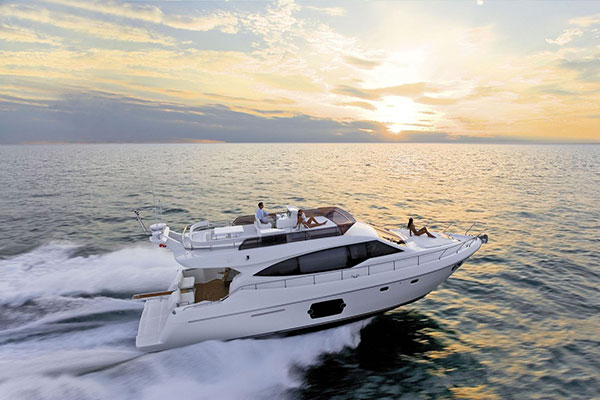Ferretti sails into choppy financial waters
(Agencies) Updated: 2015-07-07 08:23
|
 |
|
Ferretti is one of the world's largest builders of motor yachts. [File photo] |
Weichai Group is pulling out all the stops to turn around the fortunes of the luxury Italian yacht builder and entice China's rich buyers
When Chinese industrial conglomerate Weichai Group snapped up cash-strapped Italian luxury yacht builder Ferretti in 2012, the deal looked like a match made in seafaring heaven.
Debt-laden Ferretti, known for the elegant Riva speedboats favored by 1960s film star Sophia Loren, was the world's largest manufacturer of motor yachts, and cash-rich Weichai saw an opportunity to offer luxury leisure to the growing ranks of Chinese billionaires.
Three years on, wealthy Chinese are yet to fully embrace the appeal of messing about in boats and Ferretti has since slipped to No 3 among global superyacht builders, according to an annual order book survey by industry publisher Boat International, and is still loss-making.
"The market is not that big, the market is not that fast," Fabiomassimo Discoli, a Hong Kong-based sales manager for Ferretti said, adding that the company had found it needed to adapt its boats to the different tastes of Asian owners, especially mainland Chinese.
"They don't sleep on board and just use the boats for entertainment purposes," Discoli said, speaking at the Singapore Yacht Show aboard a 21-meter Ferretti Yachts 690 that carried a 3 million euros ($3.31 million) price tag.
"They bring their customers ... do karaoke ... and smoke cigars."
The example of Ferretti underscores the difficulties Chinese buyers face in extracting quick returns from a global brand at a time when they are gobbling up Western assets.
The weak euro is making companies in countries such as Italy or Portugal attractive, as the March purchase of tire-maker Pirelli by China National Chemical Corp shows.
Chinese buyers poured $18.8 billion into European assets in 2014, the highest since 2008, and topped that figure in the first half of 2015 alone, Thomson Reuters data highlighted.
But financial muscle alone is not enough to master a brand, and question marks hang over the ability of many Chinese buyers to increase exports in their home market.
Alberto Galassi, CEO of Ferretti after being appointed by Weichai last year to try to revive the Italian group's fortunes, expects the company to return to net profit in 2017. Weichai's original Ferretti management team had envisaged the firm breaking even by the end of 2013.
"The Chinese bought an industrial plan that after two years did not produce results," Galassi said at the firm's historic Riva shipyard in Sarnico, on the shores of Lake Iseo in northern Italy. "They value their investment but they also want returns."
- 2015 China International Fair for Investment and Trade kicks off in Xiamen
- China's commodity imports robust in Jan-Aug period
- China stocks rebound 2.92%
- 2015 China box office already past 2014 total
- China foreign trade decline widens in August
- Interview: JP Morgan's senior executive bullish on China
- Innovation, development the focus for NZ mayors
- Lives of freelancers

















